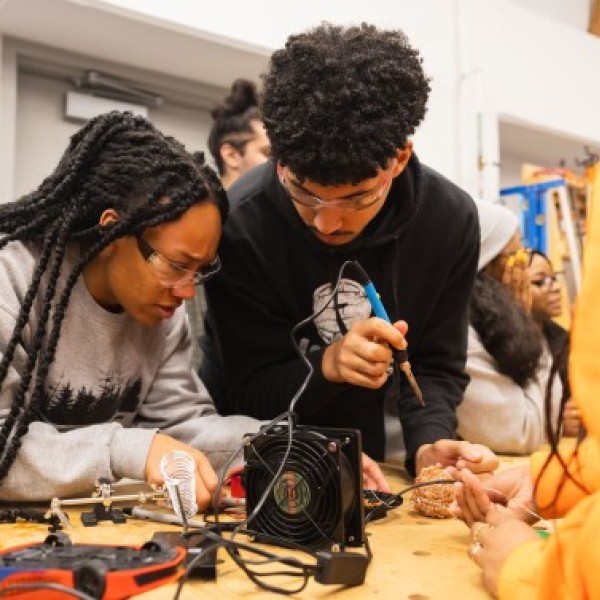Ludmilla Aristilde, assistant professor in the Department of Biological and Environmental Engineering, has received a National Science Foundation CAREER award to address a long-standing knowledge gap in environmental engineering critical to understanding how organic chemicals behave in the environment.
The prestigious CAREER Program, launched in 1996, provides support to junior faculty members for research and outreach. Aristilde will receive $600,000 over five years from the NSF Environmental Engineering and Environmental Chemical Sciences programs to study mechanisms underlying the trapping of organic matter, including contaminants and biomolecules within environmental matrices.
The trapping being studied by Aristilde controls transformation and transport rates within lake and river sediments, soil subsurface, landfills, waste sludge, and water filtration systems. She says the overarching goal of the proposed research is to develop a novel approach that combines experimental and computational approaches to obtain nanoscale to molecular characterization of complex organo-mineral mixtures.
The research findings will advance new theoretical considerations in addressing long-term organic matter sequestration and burial as well as contaminant persistence in the environmental matrices and solid waste treatment.
The research activities are built on Aristilde’s expertise in surface spectroscopy, molecular biology, and computational simulations to unravel the framework of organic matter structures at mineral surfaces that drives the trapping of organic contaminants and plant and microbial biomolecules in natural and engineered environments.
She plans to apply recent advances in mass spectrometry and metabolomics for the unprecedented molecular fingerprinting of biological matrices. Her work aims to explain how molecular organic structures are assembled and get trapped within particles in soils and waters.
Her planned outreach activities are aimed at increasing the public literacy of the molecular-scale and nanoscale processes that drive the fate of organic matter and organic contaminants with relevance to public and ecosystem health. Her group will partner with the Cornell Cooperative Extension office in Ithaca and in New York City to provide interactive scientific activities to inner-city youth development programs and educational outreach sessions for upstate farmers.
More information about the Aristilde Research Group can be found at: http://blogs.cornell.edu/aristilde





